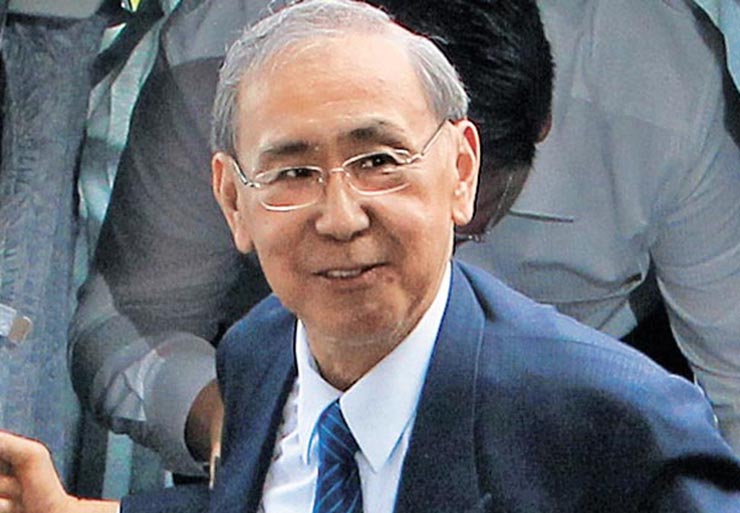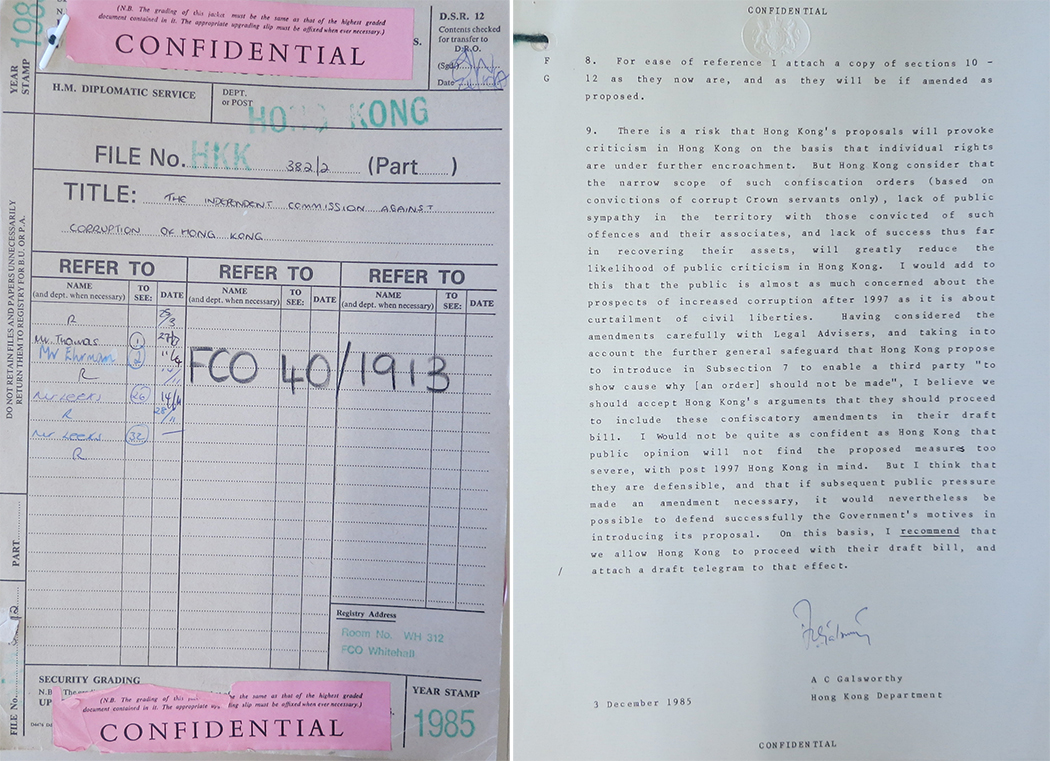
Newly declassified documents seen by HKFP show that London was concerned about the potential corruption of civil servants after the 1997 handover. It was one of the main reasons for proposed amendments to the anti-bribery law in 1985, which were later passed and have been used since Hong Kong’s handover to China.
The information is revealed in a set of 1985 documents stored in the National Archives in Kew, London and declassified in August. The set of documents is entitled The Independent Commission Against Corruption of Hong Kong.
A year after the Sino-British Joint Declaration was signed, Hong Kong was discussing amendments to the Prevention of Bribery Ordinance with London. The amendments, originally questioned by London, were ultimately added as the now Section 12AA of the ordinance.

The law has been cited since 1997. Chan Kau-tai, former Chief Building Services Engineer of the Housing Department, received a seven-year jail sentence in 2004 for ten counts of bribery and was ordered to pay back a sum of HK$2.6 million; Former Chief Secretary Rafael Hui Si-yan was also ordered to pay back HK$11.18 million worth of bribes after he was convicted in 2014.
In a confidential internal discussion document from within the Foreign and Commonwealth Office (FCO) in December that year, Anthony Galsworthy of its Hong Kong Department said the only potentially controversial amendment was to Section 12.
The Section 12 amendment was to additionally provide for a confiscation order to be made by a court against the property either of a civil servant convicted of a corruption offence, or of a third party, under the convicted person’s control, who was closely connected to the person.
The 1985 amendment was proposed as Hong Kong argued that since 1974, when the anti-graft agency was established, it had proven “extremely difficult” to retrieve the concerned properties, and only 36 per cent of the total amount had been recovered at the time. A reason was that the convicted party may have put the properties beyond the court’s reach, therefore a confiscation order extending to third parties may be needed.

In the document, Galsworthy explained the amendment may provoke criticism in Hong Kong on the basis of further encroachment to individual rights.
“But Hong Kong consider[s] that the narrow scope of such confiscation orders… lack of public sympathy in the territory for those convicted of such offences and their associates, and lack of success thus far in recovering their assets, will greatly reduce the likelihood of public criticism in Hong Kong,” he wrote.
“I would add to this that the public is almost as much concerned about the prospects of increased corruption after 1997 as it is about curtailment of civil liberties,” Galsworthy wrote.
He suggested to London that Hong Kong’s arguments should be accepted.
“I would not be quite as confident as Hong Kong that public opinion will not find the proposed measures too severe, with post 1997 Hong Kong in mind,” he added.

Similar amendments were not proposed in 1973 as Hong Kong and London could not reach a consensus after a “spirited exchange of telegrams,” according to A.B.S. Pierce, deputy law draftsman of the Hong Kong government.
Pierce wrote to the FCO in September 1985 that “circumstances have changed a great deal since 1973” and urged London to agree to the legislation as soon as possible.
Initially, Galsworthy did not agree with Hong Kong, in a message to the FCO’s legal adviser written in October that year, saying that he found it difficult to understand what has changed since 1973.
But the legal adviser, Mr Wood, convinced Galsworthy as he said he saw no legal reason to object Hong Kong’s proposal. It did not conflict with the UK government’s obligations on human rights in Hong Kong, and the amendments were similar to an anti-drug-trafficking measure proposed by the Home Office at the same time.
According to the government’s laws information system, the proposed amendments were ultimately passed in 1987.
